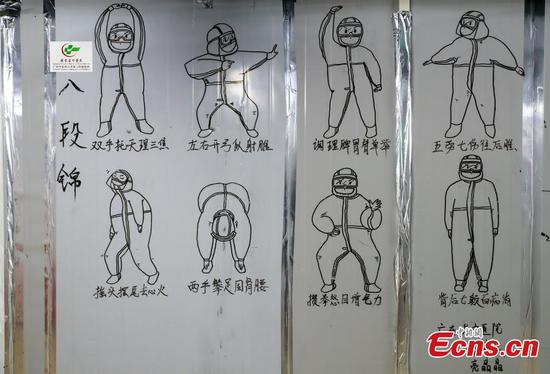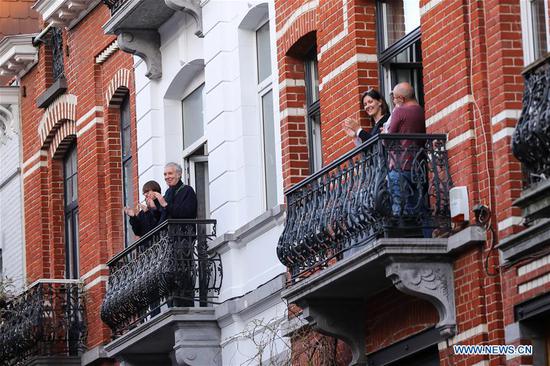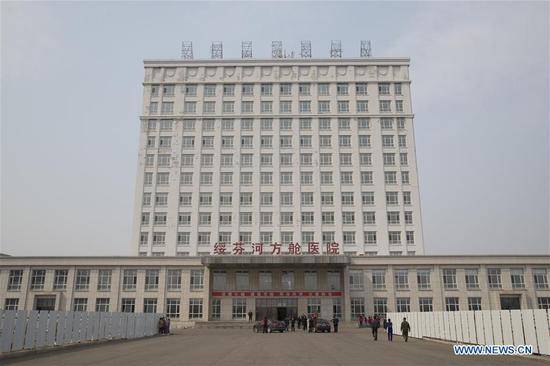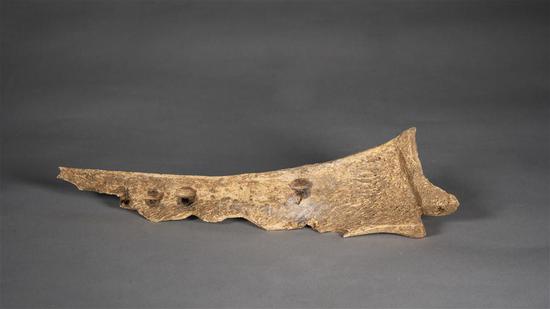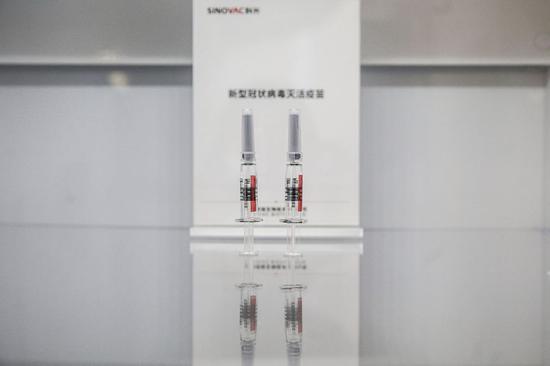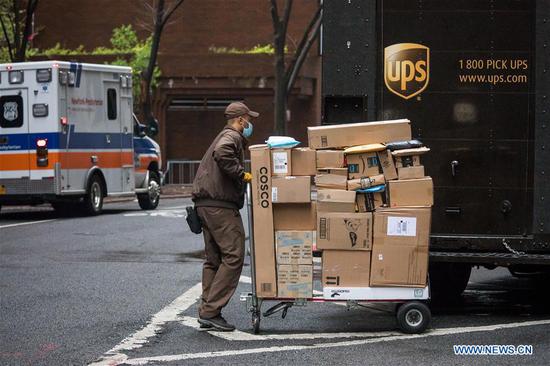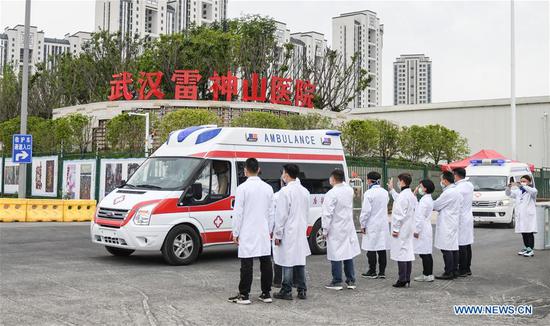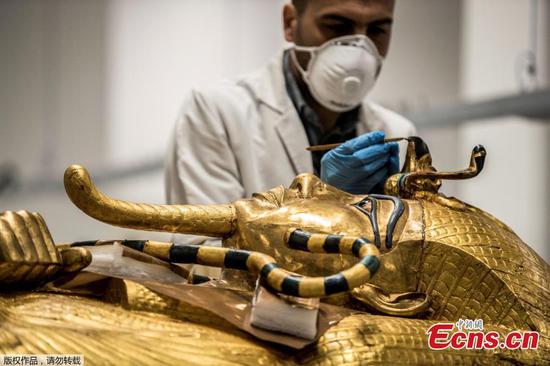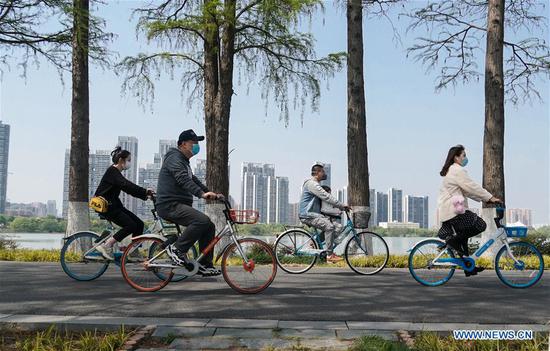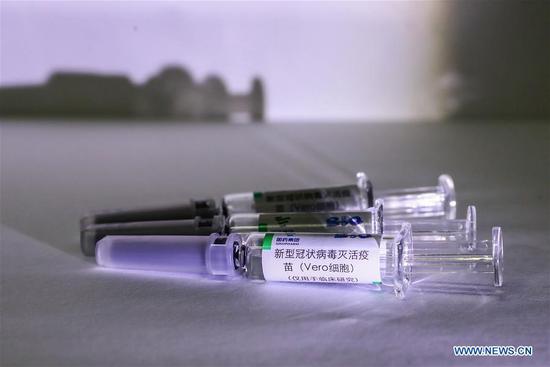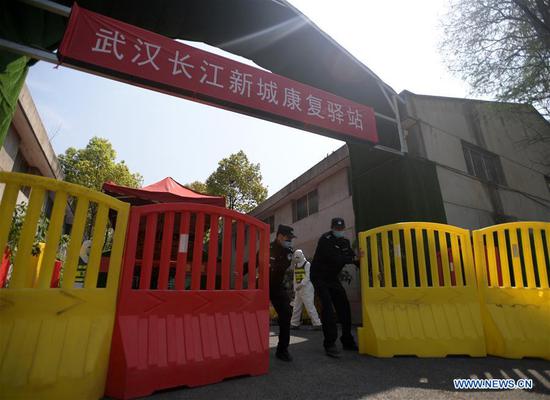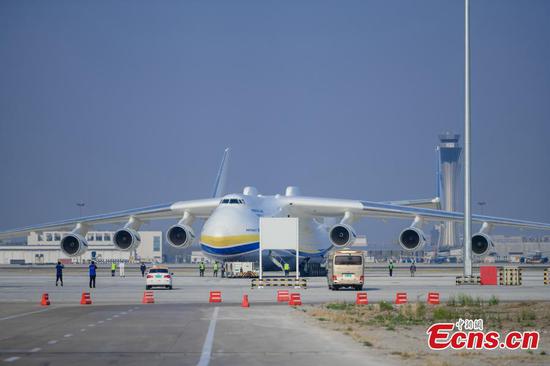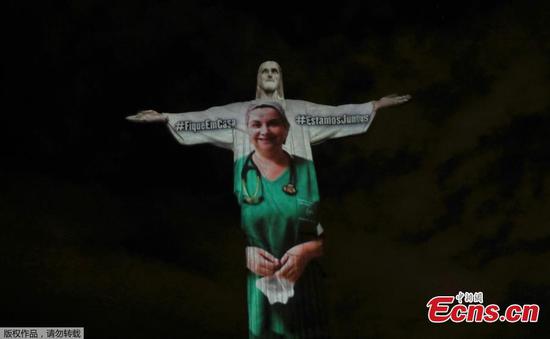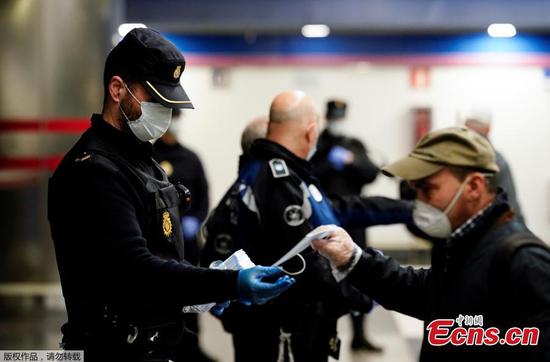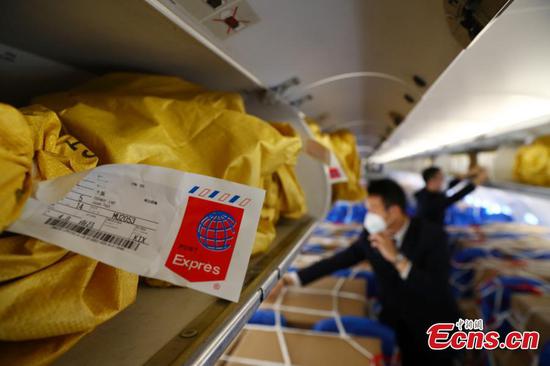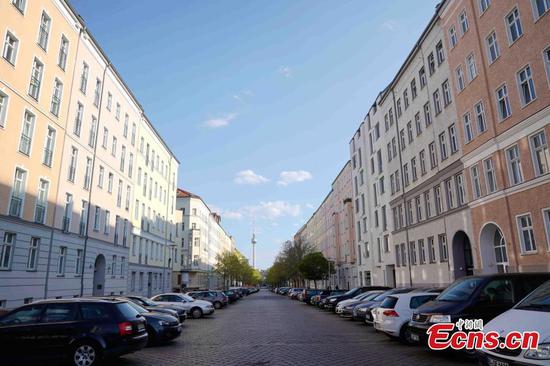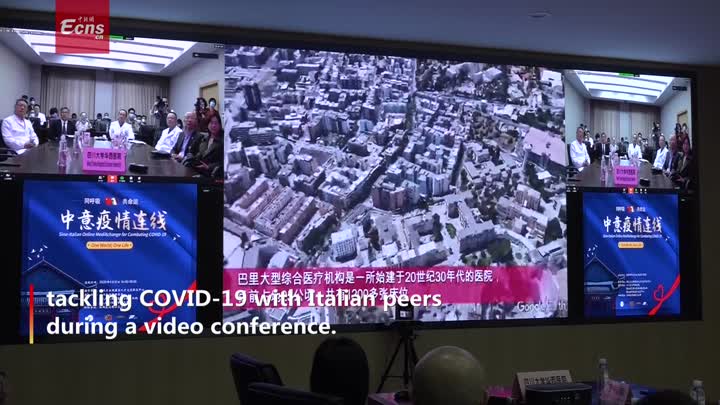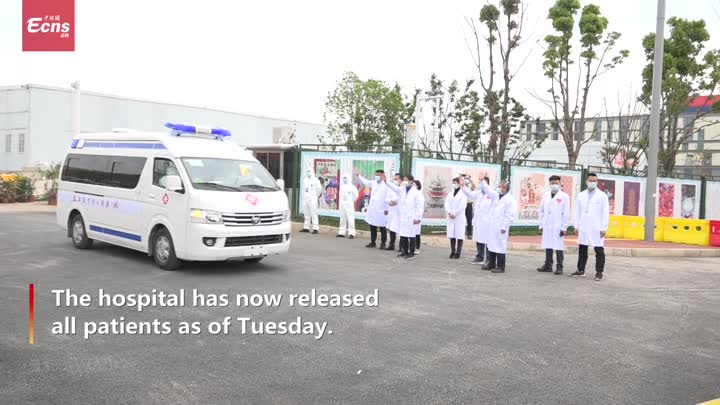
Workers assemble cars at a workshop of FAW-Volkswagen Automobile Co Ltd in Changchun, Northeast China's Jilin province, April 14, 2020. FAW-Volkswagen delivered 337,096 vehicles in the first quarter of this year, continuing to make it the best-selling passenger vehicle manufacturer in the world's largest auto market. (Photo/Xinhua)
China will further intensify its proactive fiscal policy through a multipronged approach and strengthen the role of the financial sector in supporting the real economy to help businesses ride out difficulties, the State Council's executive meeting, chaired by Premier Li Keqiang, decided on Tuesday.
"Support measures we have rolled out since the start of this year are adequate and robust. What is crucial is to ensure their full delivery," Li said.
Those at the meeting on Tuesday called for intensifying proactive fiscal policy using a multipronged approach. They also urged expeditious allocation of an additional amount of local government special bonds in advance upon completing required procedures.
More steps will be considered to strengthen the financial sector's role in supporting the real economy, especially smaller businesses.
Support will be extended to manufacturing and service companies to lower rental and hiring costs. The subsistence needs of people living in difficulties will be better met.
"Tax and fee cuts are widely welcomed by the micro, small and medium-sized companies, yet they are still confronted with the pressing difficulty of high rents and labor costs," Li said, "Subnational governments have taken some steps to help. Relevant departments should also swiftly work out measures to support businesses in retaining workers, otherwise employment will be directly affected."
Since the year's start, many policy measures have been rolled out to boost anti-epidemic supplies, support businesses and restore economic activities. Value-added tax relief was introduced for micro and small enterprises and self-employed business owners. The export tax rebate rate for selected products was raised. The loss carryforward period for companies in the transportation and hospitality sectors was extended. Employers' social insurance contributions were temporarily lowered or waived, and payments to the housing provident fund were deferred. Roads and expressways were made toll-free, and electricity and gas rates for enterprises were cut.
These measures, together with the carry-over effect of last year's tax and fee reductions, are expected to lower business costs by 1.6 trillion yuan ($226.9 billion).
Financial support has included three cuts in the required reserve ratio and relending and rediscount provisions for financial institutions with 3.55 trillion yuan of low-cost capital to issue low-interest loans to businesses. As of the end of March, about 880 billion yuan of principal and interest payments of corporate loans has been deferred.









